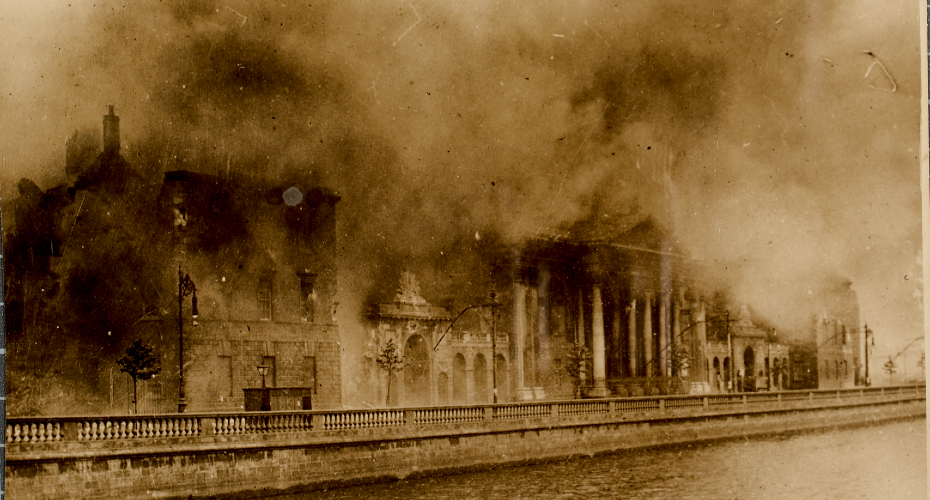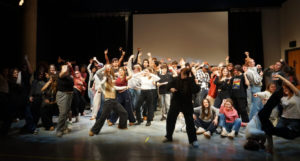Prestigious research fellowship awarded for new study into civil war poetry of Britain and Ireland

An image of the Four Courts in Dublin on 30 June 1922, and an explosion which destroyed the Public Records Office
The question of whether poetry written during civil war periods in Britain and Ireland constitutes a distinct genre of literature is to be the focus of a new national academic fellowship.
From Andrew Marvell in 1650 to Seamus Heaney in 1975, via WB Yeats in 1923, some of the most respected poets of the modern age have written about their experiences of civil war.
Their work and the motifs, images and figures of speech exhibited in the poetry of their contemporaries, will be explored thanks to a Leverhulme Major Research Fellowship awarded to Nicholas McDowell, Professor of Early Modern Literature and Thought at the University of Exeter.
The two-year fellowship, worth £100,000, will examine whether poetry about conflict within states – namely, the English Civil War (1642-1651), the Irish Civil War (1922-23) and the Northern Ireland ‘Troubles’ – is different from that which meditates upon war between states.
“Civil war has been by far the most common type of war in the world since the end of the Second World War,” said Professor McDowell, of the Department of English and Creative Writing. “My project builds upon recent historical and theoretical work that focuses upon civil war as a separate phenomenon from inter-state war. While war with other states can create a sense of national unity, war within the state can create a disorientating sense of self-division and national fragmentation.”
Growing up in Northern Ireland in the 1970s and 80s, Professor McDowell had first-hand experience of such conflict and has devoted much of his academic career to studying the poetry of writers who lived through and responded to such turbulent times. And he says that many of the distinctive images and motifs present in their work have emerged and evolved from classical Roman ideas and representations of civil war as the most violent and destructive of all types of conflict.
The Fellowship will enable Professor McDowell to present his research at talks and conferences across Britain, Ireland and the United States of America, and produce a new book that draws together the research.
Professor McDowell, who is also an internationally renowned expert on the writing of John Milton, added: “The Leverhulme Trust is now unique among funders in giving individuals the opportunity to pursue specific research projects by freeing them from other academic duties. The Major Research Fellowship is the most prestigious and generous of their grant awards to individuals, and I am very grateful to get the chance to complete a project that takes risks in trying to bring together periods that are usually kept apart in historical and literary studies.”



